Last week saw the release of a new free-to-play Chinese electronic gambling game disguised as a 3rd person action RPG named Genshin Impact. And it turned out to be one of the largest launches for a Chinese game ever.
I wonder why...
Don't get me wrong: I love games with sexy girls and tons of fan-service! Not so much though, when I'm painfully aware that the actual entertainment product is a trap, designed to slowly condition players to regularly spend money for premium currency. Such currency can then be spent to take part in a game of chance-like ordeal where you pay to get a shot at unlocking a bunch of random heroes and items of different "rank", "tier" or "value" upon "rolling a banner", opening a loot-box, a chest, a magical item or whatever the hell they decide to call those in a particular game of this category.
Remember these?

Yes, the Panini Sticker Albums...
An Electronic Sticker Album
Think this, but in the form of an electronic collectible game where instead of sticker packs you have loot boxes with virtual characters and instead of stickers to put them into the album you get...
Nothing
...except some pretty pictures on your phone and a hole in your (or your parents') wallet.
At least with a sticker album you get to keep your physical collection of stickers or cards as well as the album, whereas with online-only games like these when the time comes and the game servers inevitably get shut down, you'll immediately lose access to all of your collectibles as well as the game itself however good or bad it might have been. Hence the "inferior" in the title of this blog post.
So you almost get a similar experience, but are at the mercy of the game's developers from beginning to the end.
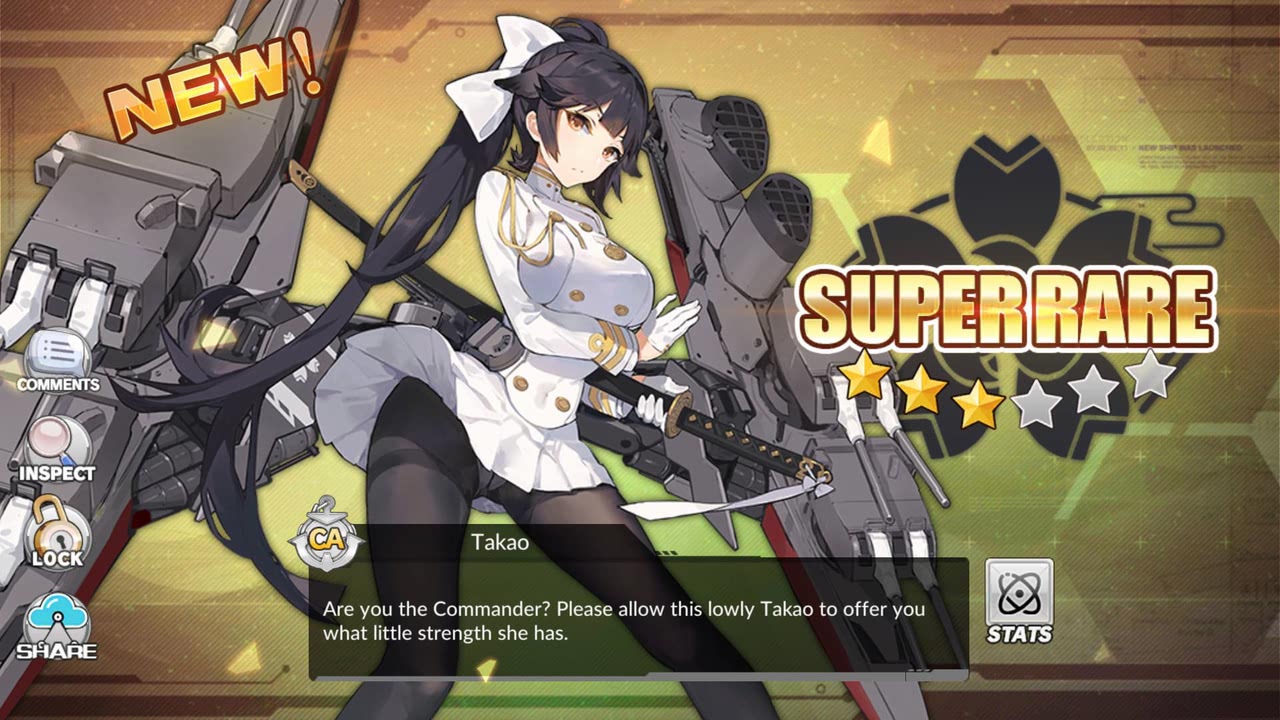
Having worked in Marketing for over 10 years, I can recognize some of the techniques used by the devs to maintain player interest and increase retention rates: giving players free heroes to "soften them up", drip-feeding premium currency, setting up daily challenges and events to make sure players keep engaged for longer, which in turn increases the chances that one day the player finally gives up and reaches for the wallet.
Finally, all players inevitably hit the dreaded "pay-wall" almost any modern gamer is familiar with. Making it so that you either die "grinding" for hours to receive a meager amount of content, locked behind a paywall, or get access to some of it by paying up front.

Looking back to the time when I was assembling my own Panini sticker album (Sonic the Hedgehog-themed one) I remember the relentless itch to get new packs and the rush when a new sticker or two were to be found in a despised sea of duplicates.






And, man... Although I don't consider myself a gambler in the slightest, trying to recall how much money was spent on these sticker packs, I'm pretty sure at least a couple hundred dollars were wasted over the course of 2 to 3 years of collecting and hunting down stickers, buying them from retailers and school-mates.
It was a project!
Useless. Pointless. Time and resource-intensive project contrived by a kid who didn't know any better.
Fast forward 20 years and it seems like Panini is alive and well and still making money selling collectible trading cards.

But today's electronic alternative to sticker albums is much, much more nefarious...
Glorified Electronic Gambling
I'm not here to criticize the game. I just want to direct your attention to this particular fact:
Genshin Impact managed to achieve the biggest global launch of a Chinese game ever, having gained over 21 million pre-registrations across all platforms and is estimated to have made over $50 million of revenue in a single week from just mobile platforms.
Update as of Mar 5, 2021: It's been 5 months and the initial value of 50 mil pales in comparison to these revenues... It's now the world's third highest earning mobile game.
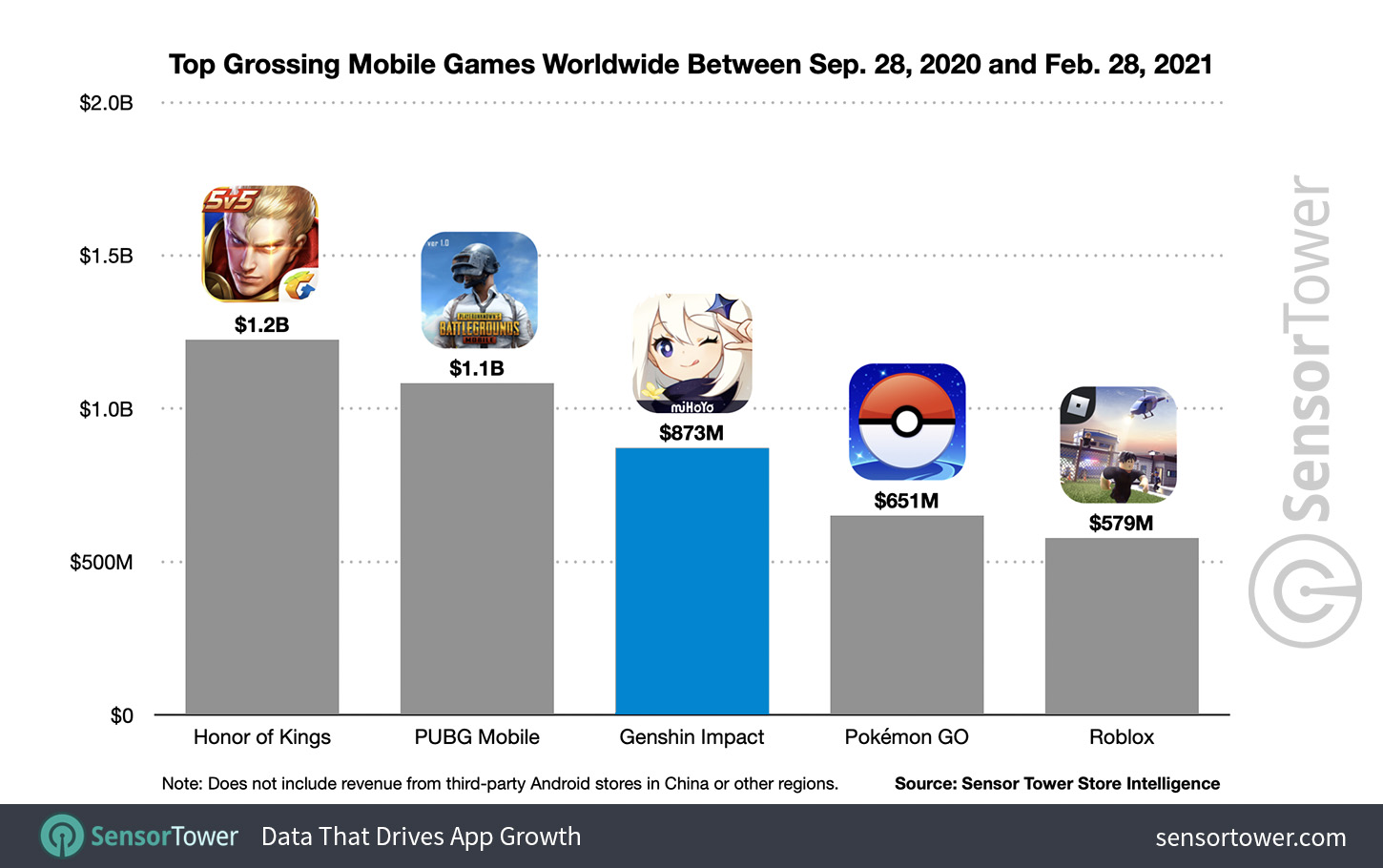
Update as of Sep, 2021: It's been a full year and, well... Free to play games apparently bring in more money than some largest AAA-releases and console exclusives. It's almost as if they are not really free to play...
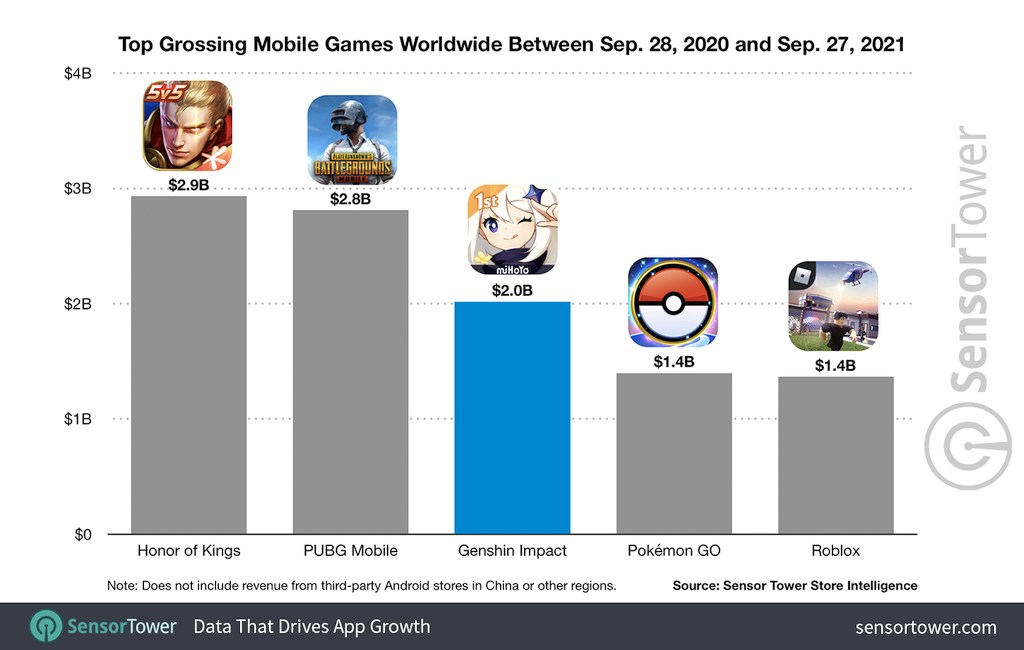
If you've been living under a rock or aren't big into videogames and don't know what GACHA is, – this is it.
Genshin Impact is GACHA. It's an electronic gambling product in the form of a videogame.
And if you are aware of the term, you might be tempted to just dismiss the news: "It's just one of many GACHA games out there, no big deal..."
Allow me to disagree.
This very product marks a new milestone for unregulated electronic gambling. Several years ago such games were mostly contained in a niche category of cheaply-made mobile games pandering to obsessive collectors, people with lots of disposable income or those who just wanted to have a game or two on their phone to play from time to time, for free. The latter group being smart enough to never end up paying for any in-app items with real-world money and gradually losing interest.
Genshin Impact is a first "triple-A" Chinese gambling game that on the outside looks like... a real game. With pretty graphics. Available for a myriad of platforms including mobiles, PC, Playstation, Switch and Xbox. It really, really wants to feel like a "big" and quality title, and presents itself as such.

Coupled with the fact that it's the first GACHA product with a previously unheard of development budget of $100+ mil, this game attracted attention of groups previously unfamiliar with the concept of free to play collectible gambling games, which is quite a concern. Underneath a childish and innocent appearance lies a psychological tool designed from ground up to condition players to become addicted to random rewards given out after the purchase of content packs with a fixed price.
Or "bets" if you're looking for an actual gambling analogy.
Lots of unsuspected players might fall for this gimmick and end up realizing to have spent loads of money chasing after anime characters on a screen, when it's too late. We're humans after all. And humans have weaknesses.
What many of new players don't expect is that the rates of getting "valuable" or new characters and items quickly diminish over time. Just like with Panini sticker packs, the more you buy, the less are the chances that you'll get unique cards in the pack.
Therefore this:
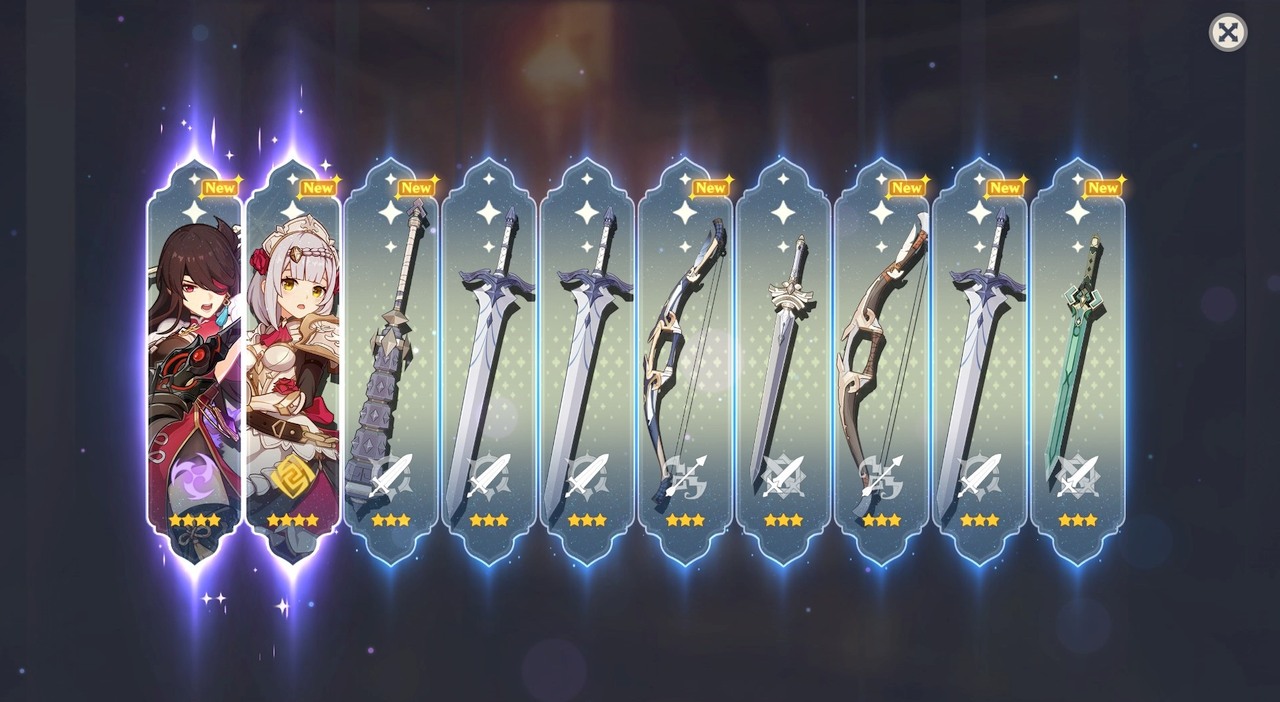
Quickly turns into a stack of nearly-worthless duplicates...
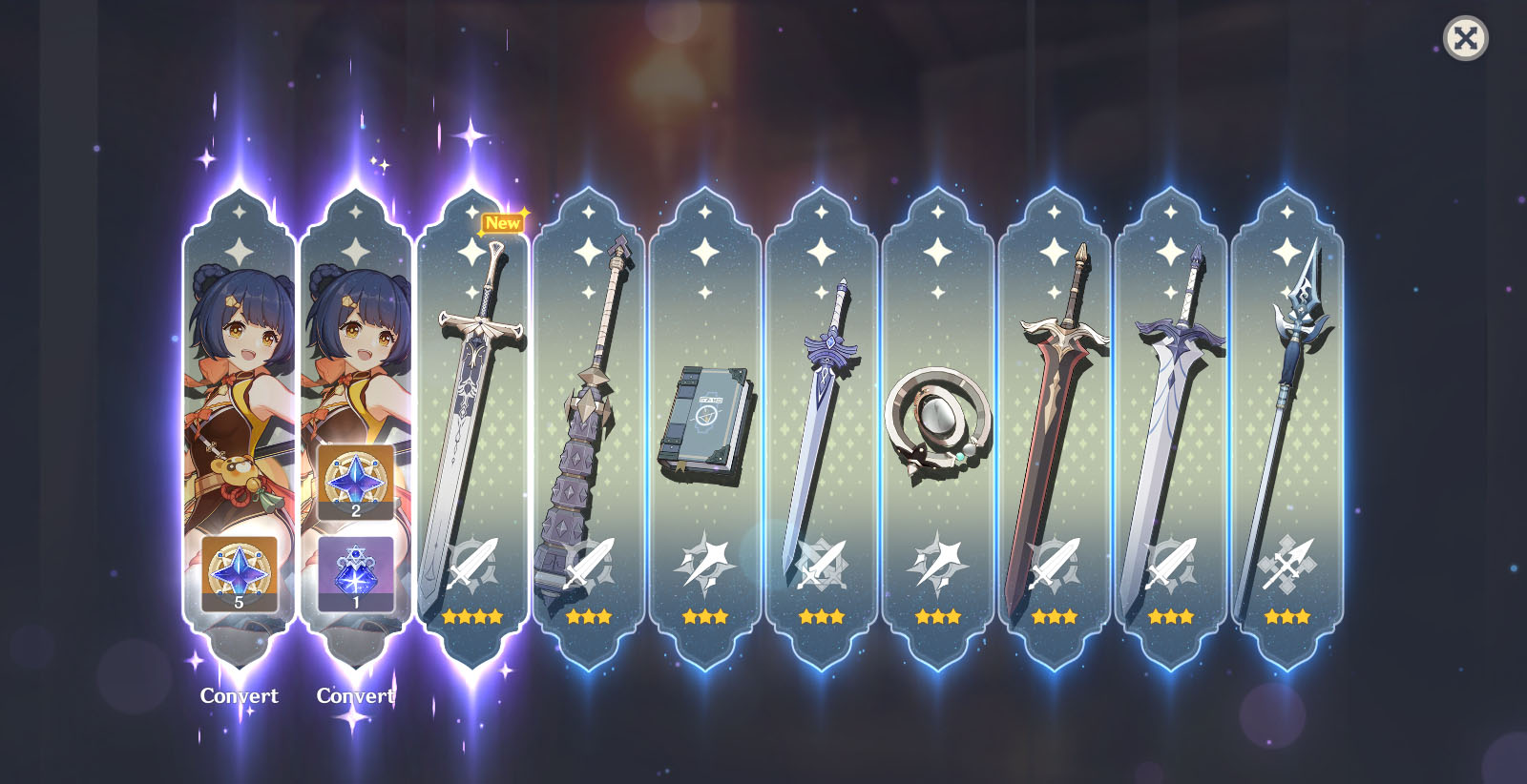
...or a pile of dreaded "3-stars":
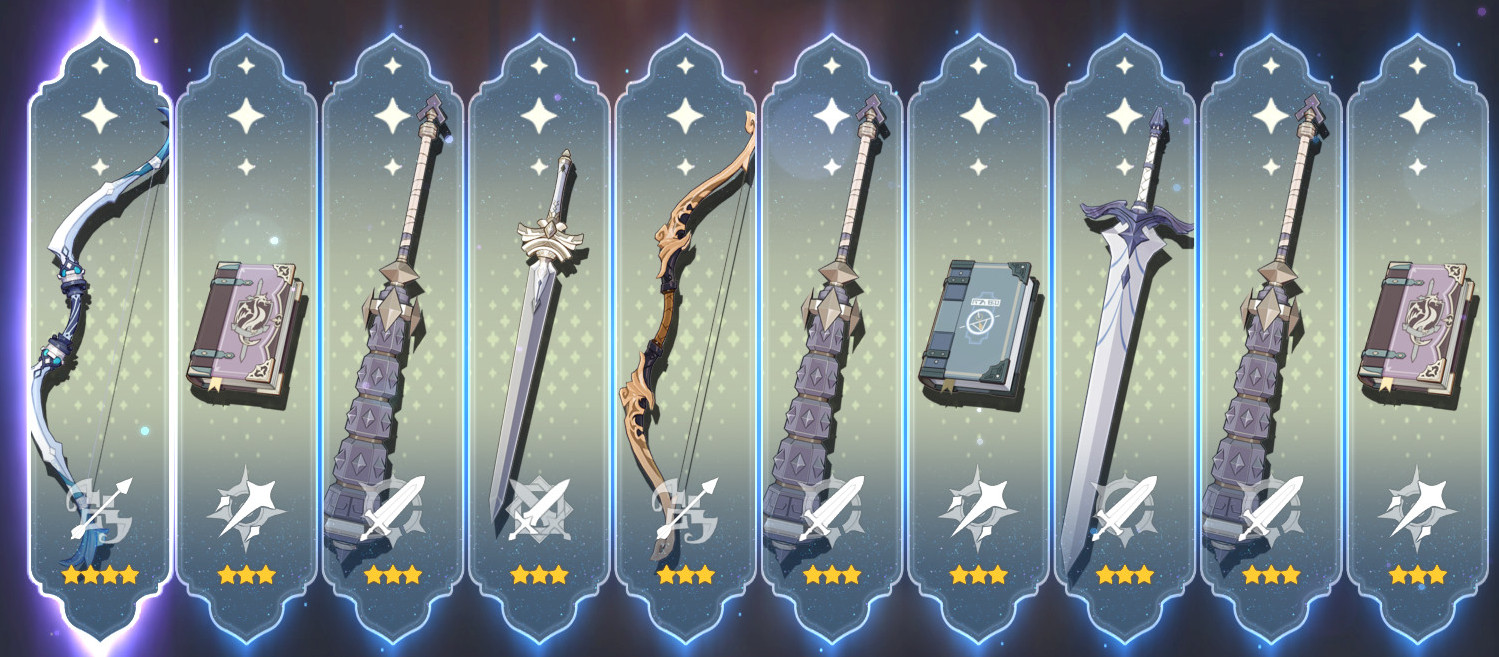
The drop rates are so bad, there exist memes dedicated to this very subject:
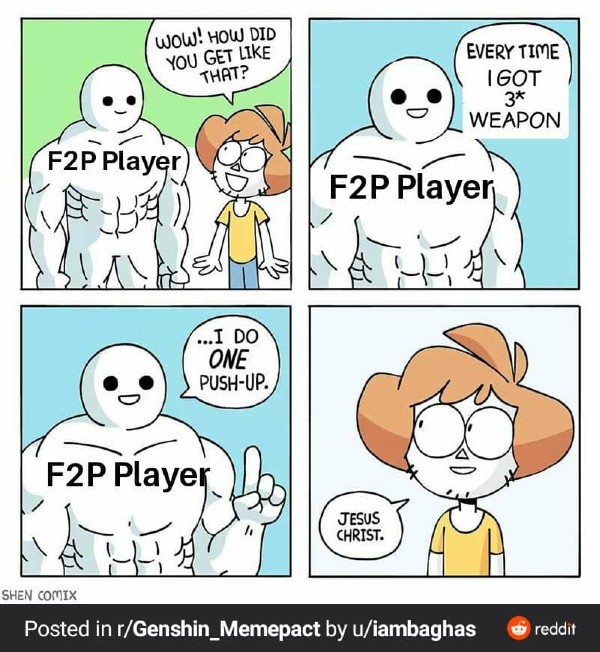
In the case of a sticker album you could often find other collectors and exchange your duplicates for new stickers or cards. Whereas in their electronic counterparts you aren't allowed to. Because it's bad for business. As long as players are sharing and swapping their collectibles they are not spending money which is (apparently) not a viable business strategy. At least... Not for this sort of a product.
It's something more and more players take for granted as the time passes. What isn't helping is the fact that such products receive aggressive promotion on streaming and video networks which further normalizes gambling behavior as something "cool".

So the meager sum I mentioned having spent on my own Panini album 20 years ago is easily dwarfed by thousands of dollars spent by "whales" in modern-day GACHA games.
Now Why the Hell Am I Telling You All This?
If you have children or care about someone who has kids, consider asking them what games they play. You may be surprised to discover that that pocket money received by the child is immediately washed down the drain for electronic entertainment with an added bonus of a good chance of developing a strong gambling addiction.
Previous GACHA apps like Azur Lane, Honkai Impact, Destiny Child, The Alchemist Code were mostly mediocre mobile games unknown to the larger public. The very visible success of Genshin Impact will no doubt steer more developers into making gambling-centric apps camouflaged as AAA-games for all platforms including PC, Playstation, Switch and Xbox, since the initial expenses can be rapidly covered within a couple of weeks after release.
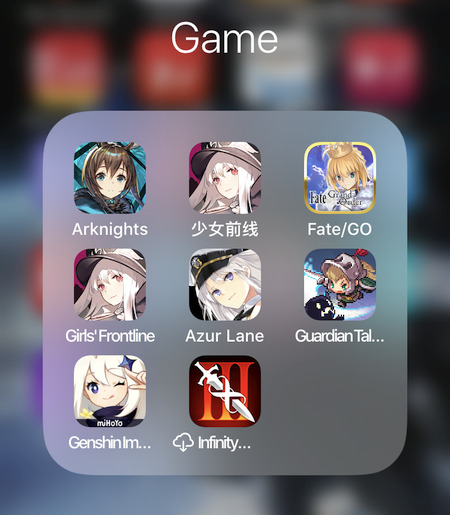
Unlike free to play games like Fortnite, Overwatch and the like, where loot-boxes unlock cosmetics which don't affect gameplay, GACHA games go for the kill: they attach actual "value" (stars, rating, stats caps e.t.c.) to virtual heroes and items. Those items differ vastly in their actual effectiveness, basically turning them into valuable resources to have in the game world. The dreaded "pay to win", if you will. Chinese and Korean developers know what they are doing and they are doing it well: by taking popular and successful games, making carbon copies, filling those with anime girls, fan-service and gambling mechanics and calling those "games".
I got lucky as a kid having only spent a couple hundred on my pointless hobby before losing interest. Besides, I think another reason I managed not to lose any more was a simple lack of availability of Sonic the Hedgehog sticker packs in the retail shops around the area I lived in! Which absolutely contributed to me not being able to waste any more pocket change on sticker packs: it was hard to find them for sale at all.
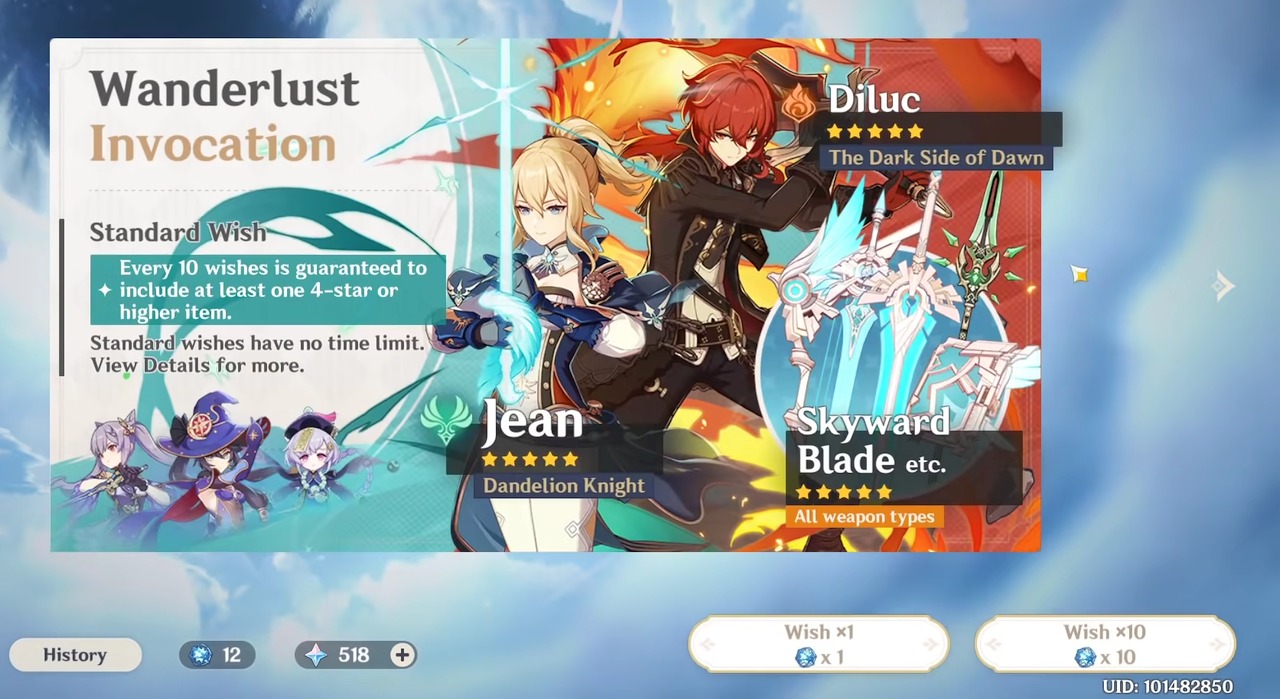
Nowadays though, with electronic gambling apps there's no shortage of virtual items, no issues with payments – just link a credit card to your account and you're good to go. There are also numerous incentives: daily challenges, drip-fed content updates – anything to keep the player engaged for as long as possible to make the conditioning process efficient.
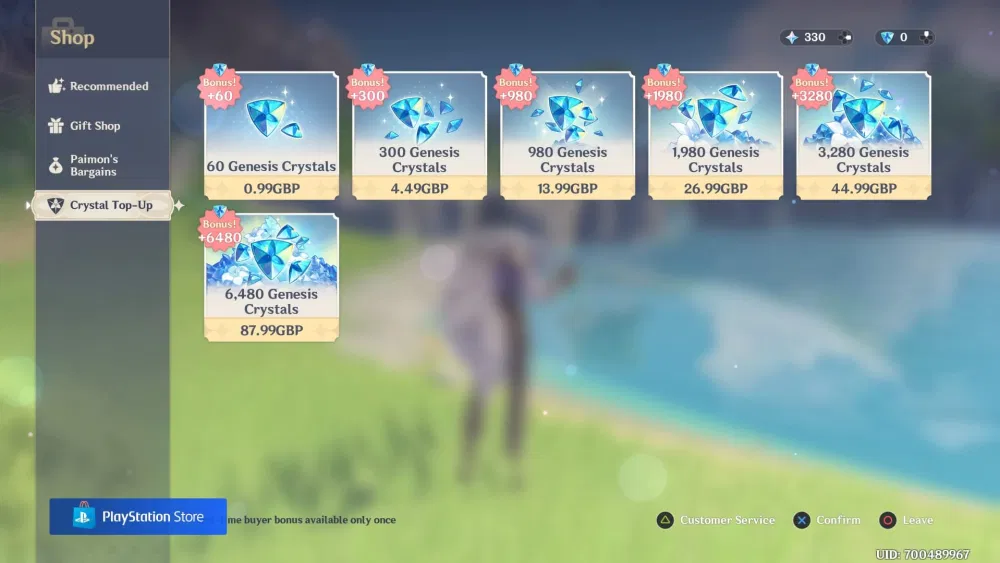
Western and Japanese developers aren't much better either. Pokemon Masters, EA Games FIFA, Marvel and Nintendo mobile games are moving in the same direction, sometimes featuring even more egregious monetization and player "hook-up" mechanics. Having started with tentative steps towards selling random loot-boxes with skins, voice-lines and artwork to players, the publishers are now outright stretching the limits of what can be called sensible and legal business practices in their effort to maximize profits, by fostering a generation of gamers willingly forfeiting their hard-earned funds for short-term bursts of instant gratification.
The world is a volatile place. Anti-loot-box bills and propositions will most likely end up doing nothing, because business is business, and there's enough profit to pay the "right" people to repeatedly veto the "wrong" bills.
Only critical thinking, a skill which is a rarity nowadays, can protect you, your friends and family from predators looking to exploit the very basic human traits, for profit.
I hope you stay informed, steer away from such products and question every "free" blessing that suddenly appears in your path.
It might not be a blessing after all.
Further reading
- Genshin Impact’s Biggest Problem Isn’t Its Zelda Mimicry
- ‘Genshin Impact’ Is Only Letting Me Play 13 Minutes A Day Due To Resin Energy